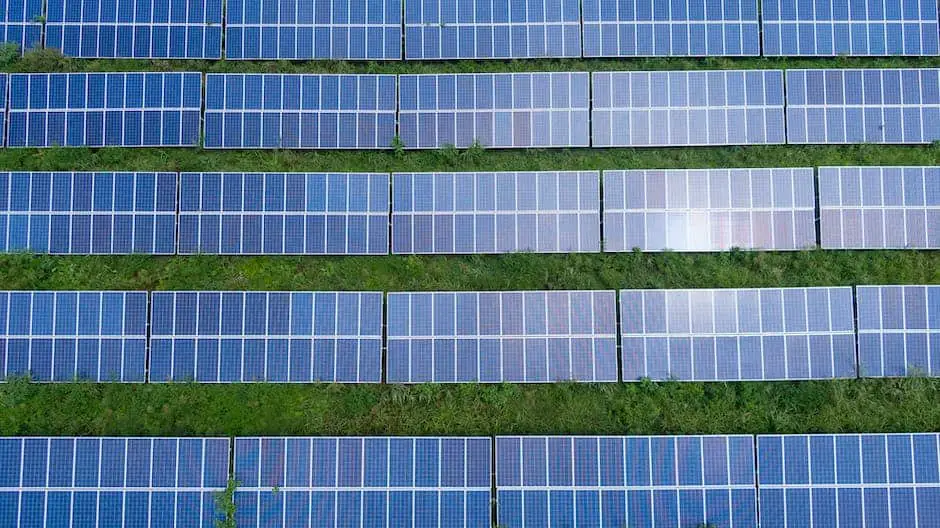
The Pros and Cons of Solar Panels for Your Rental Property
As a real estate investor, homeowner, or real estate agent, you may have considered the idea of installing solar panels on your rental property. Solar panels have become increasingly popular in recent years, thanks to their potential to reduce energy costs and promote environmental sustainability. However, like any investment, there are both pros and cons to consider before making a decision. In this article, we will explore the advantages and disadvantages of solar panels for rental properties, providing valuable insights and examples to help you make an informed decision.
Pros of Solar Panels for Your Rental Property
1. Reduced Energy Costs
- One of the primary benefits of solar panels is the potential for reduced energy costs. By generating electricity from sunlight, solar panels can significantly decrease the amount of electricity your tenants need to purchase from the grid.
- Lower energy bills can be an attractive selling point for potential renters, making your property more appealing in a competitive rental market.
- As a property owner, you may also benefit from reduced energy costs if you are responsible for paying the utility bills for common areas or shared amenities.
2. Increased Property Value
- Studies have shown that homes with solar panels tend to sell for more than comparable homes without solar panels. This increased value can be attributed to the long-term energy savings and environmental benefits associated with solar energy.
- As a real estate investor, this increase in property value can translate to higher returns on your investment when it comes time to sell the property.
3. Environmental Benefits
- Solar panels are an environmentally friendly energy source, as they produce clean, renewable energy with no greenhouse gas emissions.
- By installing solar panels on your rental property, you are contributing to the global effort to reduce carbon emissions and combat climate change.
- Many renters are increasingly concerned about their environmental impact and may be more likely to choose a rental property with solar panels over one without.
4. Tax Incentives and Rebates
- There are various federal, state, and local tax incentives and rebates available for property owners who install solar panels. These incentives can help offset the initial cost of installation and make solar panels a more affordable investment.
- For example, the federal solar Investment Tax Credit (ITC) allows property owners to claim a tax credit equal to 26% of the cost of installing a solar energy system.
Cons of Solar Panels for Your Rental Property
1. High Upfront Costs
- One of the primary drawbacks of solar panels is the high upfront cost of installation. Depending on the size and complexity of the system, installation costs can range from $15,000 to $25,000 or more.
- While tax incentives and rebates can help offset some of these costs, the initial investment may still be prohibitive for some property owners.
2. Maintenance and Repair Costs
- While solar panels generally require minimal maintenance, they are not immune to damage or wear and tear. Regular cleaning, inspections, and occasional repairs may be necessary to keep the system functioning optimally.
- As a property owner, you will need to factor in these ongoing maintenance and repair costs when considering the overall return on investment for solar panels.
3. Potential Tenant Disputes
- Depending on how the solar energy system is set up, there may be potential for disputes between tenants and property owners over the allocation of energy savings or responsibility for maintenance and repairs.
- To avoid these issues, it is essential to have clear lease agreements in place that outline the responsibilities of both parties and the distribution of any energy savings.
4. Aesthetic Considerations
- Some property owners may be concerned about the aesthetic impact of solar panels on their rental property. Solar panels can be large and conspicuous, potentially detracting from the overall appearance of the property.
- However, advances in solar panel technology have led to the development of more aesthetically pleasing options, such as solar shingles or low-profile panels that blend more seamlessly with the roof.
Conclusion
Ultimately, the decision to install solar panels on your rental property will depend on your individual circumstances and priorities. While there are clear benefits to solar panels, such as reduced energy costs, increased property value, and environmental sustainability, there are also potential drawbacks to consider, such as high upfront costs and ongoing maintenance responsibilities. By carefully weighing the pros and cons and considering factors such as local tax incentives and the preferences of your target rental market, you can make an informed decision about whether solar panels are the right investment for your rental property.